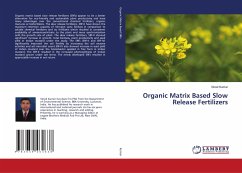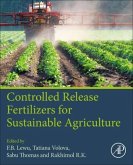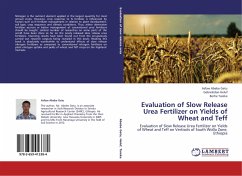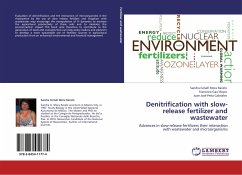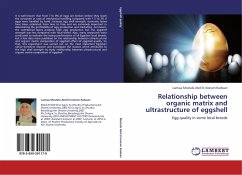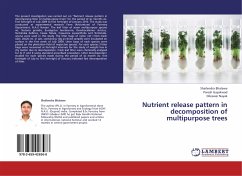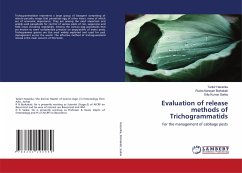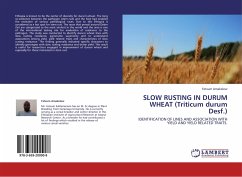Organic matrix based slow release fertilizers (SRFs) appear to be a better alternative for eco-friendly and sustainable plant productivity and have many advantages over the conventional chemical fertilizers, organic manures or biofertilizers. The slow release fertilizers, SRF-II have shown the maximum retention capacity of nitrogen upto 50-days in comparison to soluble chemical fertilizers and no fertilizers which resulted in consistent availability of ammonium/nitrate to the plant and more synchronization with the growth rate of plant. The slow release fertilizers, SRF-II showed significant increase in growth, total biomass, plant productivity and seed yield in Indian mustard under the study. The SRFs (SRF-II and SRF-IV) significantly improved the soil fertility by increasing the soil enzyme activities and soil microbial count.SRF-IV also showed increase in seed yield of Indian mustard over the Azotobacter applied in free form in Indian mustard. The SRF-II resulted in the increased photosynthesis of Indian mustard grown under salt stress. The newly developed SRFs resulted in appreciable increase in net return.
Bitte wählen Sie Ihr Anliegen aus.
Rechnungen
Retourenschein anfordern
Bestellstatus
Storno

